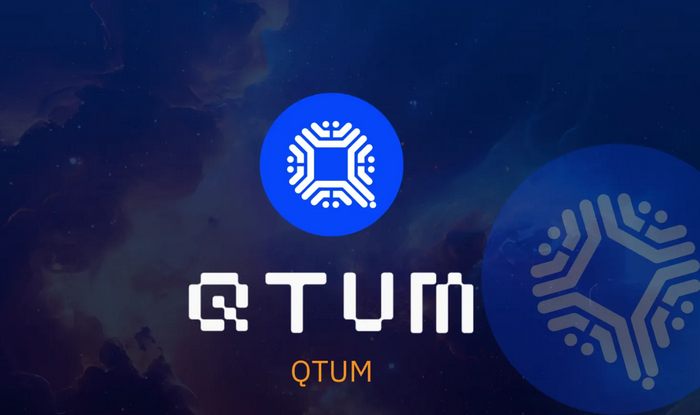-
 Bitcoin
Bitcoin $95,056.2486
1.68% -
 Ethereum
Ethereum $1,798.6789
1.96% -
 Tether USDt
Tether USDt $1.0006
0.04% -
 XRP
XRP $2.1882
-0.73% -
 BNB
BNB $603.6924
0.86% -
 Solana
Solana $151.1191
-0.29% -
 USDC
USDC $0.9996
-0.04% -
 Dogecoin
Dogecoin $0.1808
0.17% -
 Cardano
Cardano $0.7125
-1.91% -
 TRON
TRON $0.2430
-1.71% -
 Sui
Sui $3.5994
9.57% -
 Chainlink
Chainlink $15.0008
0.40% -
 Avalanche
Avalanche $22.3139
0.21% -
 Stellar
Stellar $0.2843
1.98% -
 Hedera
Hedera $0.1961
5.07% -
 Shiba Inu
Shiba Inu $0.0...01386
2.51% -
 UNUS SED LEO
UNUS SED LEO $8.8274
-4.38% -
 Toncoin
Toncoin $3.2282
1.97% -
 Bitcoin Cash
Bitcoin Cash $375.3899
6.77% -
 Polkadot
Polkadot $4.2669
0.98% -
 Litecoin
Litecoin $86.4641
3.68% -
 Hyperliquid
Hyperliquid $18.2431
-1.99% -
 Dai
Dai $1.0001
0.01% -
 Bitget Token
Bitget Token $4.4392
0.20% -
 Ethena USDe
Ethena USDe $0.9998
0.03% -
 Pi
Pi $0.6458
-0.91% -
 Monero
Monero $230.2046
2.21% -
 Pepe
Pepe $0.0...08758
1.29% -
 Uniswap
Uniswap $5.8550
0.87% -
 Aptos
Aptos $5.5258
1.47%
What is QTUM? Learn what QTUM is in one minute
Combining the security of Bitcoin with the efficiency of Proof-of-Stake, QTUM stands as a hybrid blockchain platform that addresses the needs of both traditional and modern blockchain use cases.
Oct 31, 2024 at 05:08 am

What is QTUM?
- Definition:
QTUM is a decentralized blockchain platform that combines the Proof-of-Work (PoW) consensus algorithm of Bitcoin with the Proof-of-Stake (PoS) consensus algorithm used by other blockchain networks. Key Features:
- Hybrid Consensus Algorithm: QTUM's unique consensus algorithm provides both security and energy efficiency.
- Smart Contract Compatibility: QTUM supports smart contracts based on the Ethereum Virtual Machine (EVM), making it compatible with a vast ecosystem of dApps.
- Cross-Chain Interoperability: QTUM allows for the transfer of assets and data between different blockchains, including Bitcoin and Ethereum.
- Secure and Scalable: QTUM employs multi-layer security measures and a mechanism called "Proof-of-Light" to enhance scalability.
Advantages:
- Bridging the Gap: QTUM combines the strengths of both PoW and PoS consensus mechanisms, offering a balance of security and efficiency.
- Diverse Application: Its smart contract functionality and EVM compatibility make QTUM suitable for a wide range of decentralized applications (dApps).
- Broad Interoperability: QTUM's cross-chain capabilities facilitate the exchange of value and data across disparate blockchain ecosystems.
Disadvantages:
- Moderate Adoption: QTUM's market adoption is still relatively nascent compared to more established platforms like Bitcoin and Ethereum.
- Network Security: While QTUM incorporates robust security measures, it remains susceptible to potential vulnerabilities.
- Conclusion:
QTUM is a promising blockchain platform that offers a unique blend of security, efficiency, and interoperability. Its hybrid consensus algorithm, smart contract compatibility, and cross-chain capabilities make it a versatile solution for a variety of decentralized applications.
Disclaimer:info@kdj.com
The information provided is not trading advice. kdj.com does not assume any responsibility for any investments made based on the information provided in this article. Cryptocurrencies are highly volatile and it is highly recommended that you invest with caution after thorough research!
If you believe that the content used on this website infringes your copyright, please contact us immediately (info@kdj.com) and we will delete it promptly.
- The “crypto lead-in to coin” is a classic case of the NYT Mini pulling no punches
- 2025-04-26 03:00:12
- Nexera Partners with KRNL Labs to Drive Institutional-Grade Tokenization
- 2025-04-26 03:00:12
- How the Tariff Shock Is Reshaping Markets
- 2025-04-26 02:55:13
- Binance Futures Leads the Market Through Its April 2025 Trading Activity
- 2025-04-26 02:55:13
- Pudgy Penguins (PENGU) Token Bounces Back This Week, Soaring to Its Highest Level Since February
- 2025-04-26 02:50:12
- Bitcoin (BTC) Price Spikes Above $95k, Setting Up Short Squeeze
- 2025-04-26 02:50:12
Related knowledge

What is Ethereum’s Slashing mechanism and how to punish malicious behavior?
Feb 20,2025 at 03:08am
Key PointsOverview of slashingDifferent types of slashing in EthereumIncentives and consequences of slashingIdentifying and reporting slashed validatorsOngoing discussions and potential improvementsEthereum's Slashing Mechanism: Punishing Malicious BehaviorEthereum's slashing mechanism is an essential tool for ensuring network security and punishing mal...

What is the verifier node of Ethereum and how to become a verifier?
Feb 19,2025 at 06:00pm
The Verifier Node of Ethereum: A Comprehensive GuideKey Points:What is a Verifier Node?How to Become a Verifier NodeResponsibilities and Rewards of a Verifier NodeMinimum Requirements for Becoming a Verifier NodePotential Difficulties in Running a Verifier Node1. What is a Verifier Node?A Verifier Node is an independent entity on the Ethereum network th...

What is Ethereum’s staking, and how to participate and earn money?
Feb 19,2025 at 04:37pm
Key Points:Understanding Ethereum's Staking MechanismSteps to Participate in StakingBenefits and Rewards of StakingSecurity and Risk ConsiderationsTechnical Requirements and Hardware OptionsPotential Challenges and Troubleshooting TipsFAQs on Ethereum StakingWhat is Ethereum's Staking?Proof-of-Stake (PoS) is a consensus mechanism used in blockchain netw...

What is Ethereum’s DAO (Decentralized Autonomous Organization) and how does it work?
Feb 20,2025 at 03:12am
Key PointsDefinition and Structure of a DAOGovernance and Decision-Making in DAOsBenefits and Use Cases of DAOsChallenges and Limitations of DAOsWhat is Ethereum's DAO (Decentralized Autonomous Organization) and How Does It Work?Definition and Structure of a DAOA Decentralized Autonomous Organization (DAO) is an innovative governance and management fram...

What is Ethereum's multi-signature wallet and how to improve security?
Feb 20,2025 at 02:18pm
Key Points:Understanding the Concept of a Multi-Signature WalletBenefits and Drawbacks of Multisig WalletsRequirements for Setting Up a Multisig WalletStep-by-Step Guide to Generating a Multisig WalletImplementing Strategies for Enhanced Security1. Understanding the Concept of a Multi-Signature WalletA multi-signature (multisig) wallet in the Ethereum e...

What is Ethereum's oracle and how to provide data for smart contracts?
Feb 21,2025 at 01:30am
Key Points:Understanding the concept of oracles in EthereumExploring different types of oraclesDetailed guide on how to provide data for smart contractsAddressing potential challenges and considerationsWhat is Ethereum's Oracle?Oracles are crucial components in the Ethereum ecosystem, enabling smart contracts to access real-world data and off-chain even...

What is Ethereum’s Slashing mechanism and how to punish malicious behavior?
Feb 20,2025 at 03:08am
Key PointsOverview of slashingDifferent types of slashing in EthereumIncentives and consequences of slashingIdentifying and reporting slashed validatorsOngoing discussions and potential improvementsEthereum's Slashing Mechanism: Punishing Malicious BehaviorEthereum's slashing mechanism is an essential tool for ensuring network security and punishing mal...

What is the verifier node of Ethereum and how to become a verifier?
Feb 19,2025 at 06:00pm
The Verifier Node of Ethereum: A Comprehensive GuideKey Points:What is a Verifier Node?How to Become a Verifier NodeResponsibilities and Rewards of a Verifier NodeMinimum Requirements for Becoming a Verifier NodePotential Difficulties in Running a Verifier Node1. What is a Verifier Node?A Verifier Node is an independent entity on the Ethereum network th...

What is Ethereum’s staking, and how to participate and earn money?
Feb 19,2025 at 04:37pm
Key Points:Understanding Ethereum's Staking MechanismSteps to Participate in StakingBenefits and Rewards of StakingSecurity and Risk ConsiderationsTechnical Requirements and Hardware OptionsPotential Challenges and Troubleshooting TipsFAQs on Ethereum StakingWhat is Ethereum's Staking?Proof-of-Stake (PoS) is a consensus mechanism used in blockchain netw...

What is Ethereum’s DAO (Decentralized Autonomous Organization) and how does it work?
Feb 20,2025 at 03:12am
Key PointsDefinition and Structure of a DAOGovernance and Decision-Making in DAOsBenefits and Use Cases of DAOsChallenges and Limitations of DAOsWhat is Ethereum's DAO (Decentralized Autonomous Organization) and How Does It Work?Definition and Structure of a DAOA Decentralized Autonomous Organization (DAO) is an innovative governance and management fram...

What is Ethereum's multi-signature wallet and how to improve security?
Feb 20,2025 at 02:18pm
Key Points:Understanding the Concept of a Multi-Signature WalletBenefits and Drawbacks of Multisig WalletsRequirements for Setting Up a Multisig WalletStep-by-Step Guide to Generating a Multisig WalletImplementing Strategies for Enhanced Security1. Understanding the Concept of a Multi-Signature WalletA multi-signature (multisig) wallet in the Ethereum e...

What is Ethereum's oracle and how to provide data for smart contracts?
Feb 21,2025 at 01:30am
Key Points:Understanding the concept of oracles in EthereumExploring different types of oraclesDetailed guide on how to provide data for smart contractsAddressing potential challenges and considerationsWhat is Ethereum's Oracle?Oracles are crucial components in the Ethereum ecosystem, enabling smart contracts to access real-world data and off-chain even...
See all articles























































































